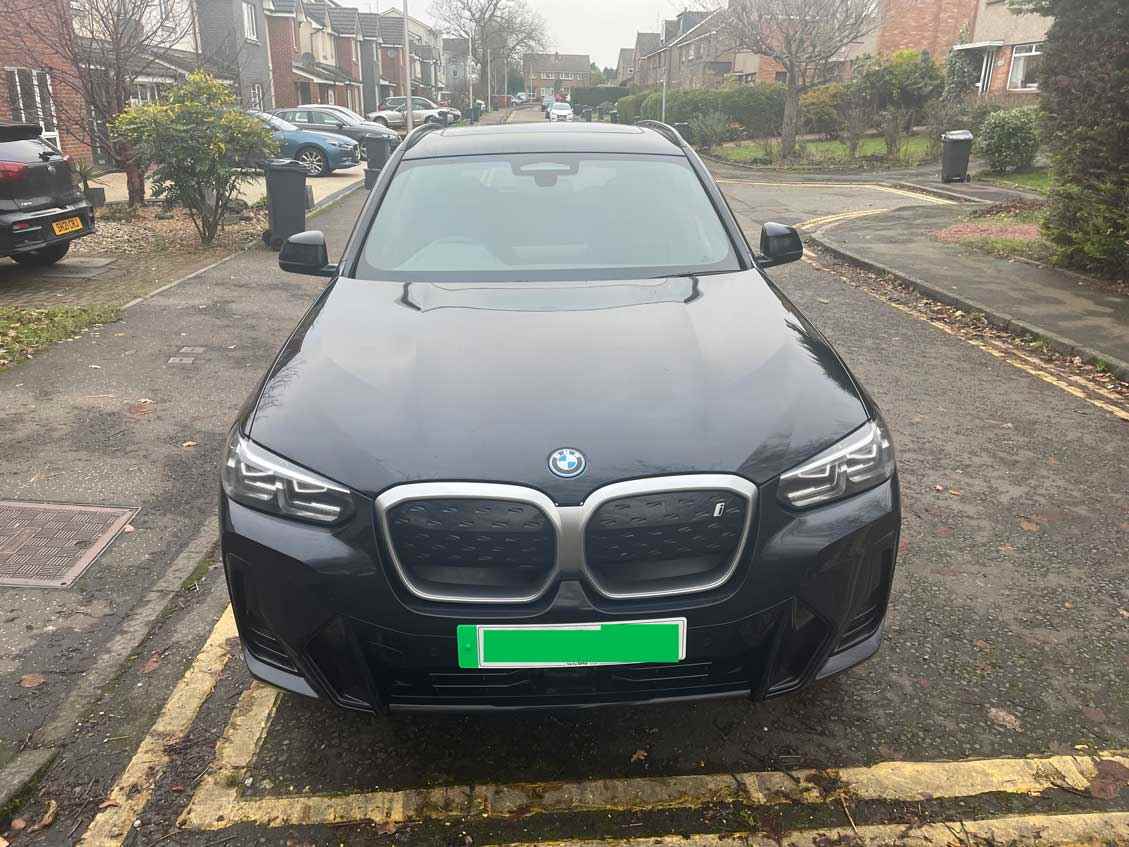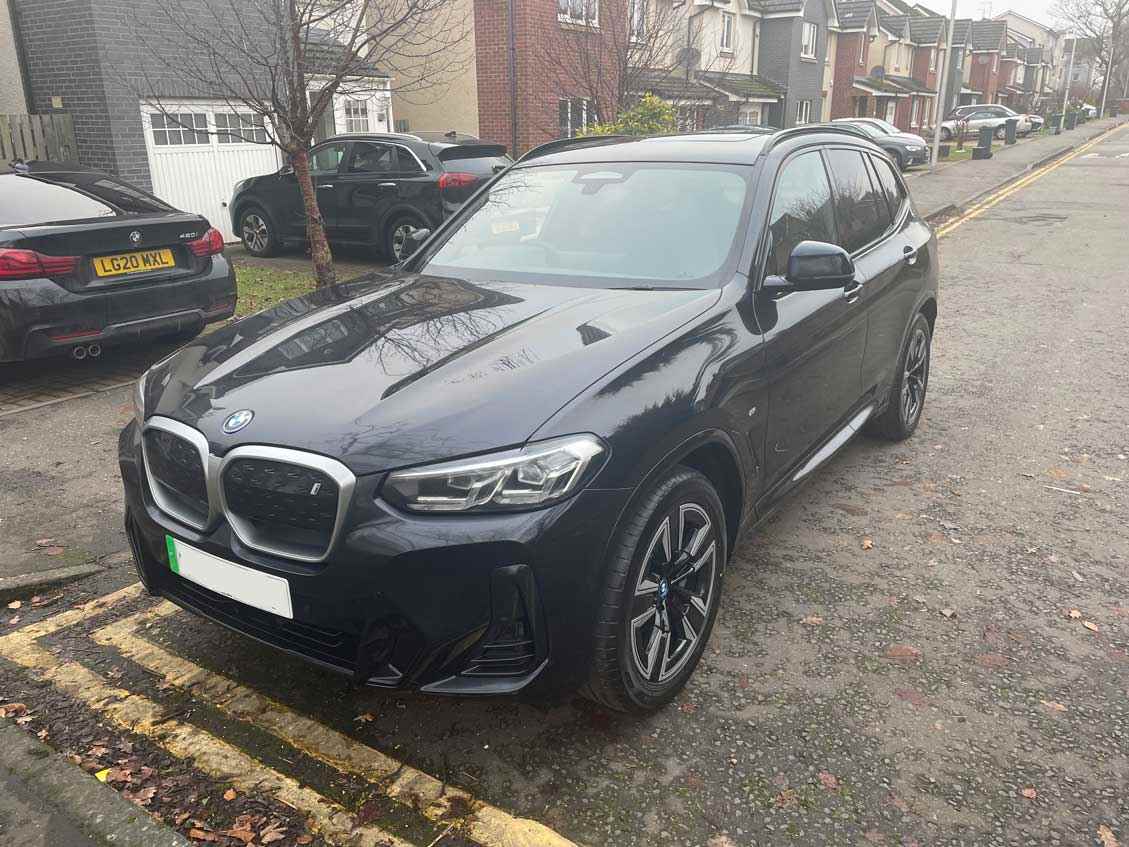
Mon-Fri 9am-5pm
Talk to our friendly electric car leasing experts now: 01942 910 001This website uses cookies to ensure you get the best experience. Learn more
Contractors with a Limited Company - why you should be leasing an electric car over a petrol one

Why you should be leasing an electric car over a petrol one - Contractors with a Limited Company
It comes as no surprise to most UK citizens that January is a cold month. And we haven’t been let down so far in 2024, with some minus temperatures, frosty mornings and chilly evenings. For electric car and van drivers, this does have an impact in that the ambient temperature that batteries need to operate at, is more difficult to achieve on a cold start.
Plus, for those with comforts like heated seats, heated steering wheels and a plethora of electric functionality, there is an energy resource impact. And news / media are not immune to this with a recent headline from ITV , suggesting that there is a risk of cold weather / EV breakdowns.

To be clear, there is little evidence of “mass-breakdowns” involving BEV technology. As the AA reported last year, only 2.1% of their callouts were for this , with many drivers now educated and attune to the charging remit on their vehicles.
But weather and climate does impact your EV; this is not something which the e-car team debate. Indeed, our innovative website clearly sets out at our “living with your …” analysis the divergence between cold and mild weather on your battery performance and again via our EVC™ with your quotation.
Our website does not use WLTP figures for this very reason. WLTP statistics are based on an average speed of 28.8mph in summer temperatures from 100% to 0% state of charge. As such, they are not particularly useful for many UK leasing customers. However, this doesn’t mean that EVs cannot offer combined full charge ranges of 200 miles+ which seems to be the minimum requirement for many drivers. In our “Longest Range Electric Cars” analysis - you will note that the average real world range on our website is now 232 miles across all cars, with literally hundreds of options offering 200 miles and upwards.
And this isn’t just about luxury and performance options to lease; this includes affordable and cost-effective zero-emission cars like the Toyota bZ4x, Cupra Born, MG4 Long Range, Mini Countryman E and Kia Niro EV. For many UK businesses, this makes the electrification transition a sensible one.
Many successful contractors will operate their business as a limited company as opposed to a sole trader or partnership and there are some very good reasons for doing this. Websites, like Contractor UK , give a useful overview of the pros and cons around this. As we are not accountants or tax experts we won’t set this out for you. However, what we can provide is a brief overview of electric cars and hopefully educate some contractors on some fantastic features and tax-savings which these offer.
Is an electric car 100% tax deductible?
Yes - a business using a zero-emitting new car is entitled to claim Capital Allowances (write down) 100% of the purchase. But this is centred around purchase-style products like Hire Purchase and Contract Purchase, which is far less frequently adopted by many of our business customers.
For those ltd’s looking to lease (contract hire), the benefits of non-ownership and the ability to return the vehicle after 2, 3 or 4 years is far more palatable and practical. Speak to your accountant to compare leasing v buying in each and every instance.

With contract hire, the way in which you account for the EV is slightly different, in that you offset the initial rental plus any subsequent rentals against your Corporation Tax. However, do note that to reclaim 100% of the rentals against tax it must emit less than 50g/km of CO2 (which means that BEVs are okay). So long as you are VAT registered, your company can claim up to 50% of the VAT on the finance element with 100% of the VAT on any maintenance and servicing also reclaimable.
As many contractors are one-person limited companies (directors and shareholders) there are other corresponding benefits in your capacity as business owner / “employer” and employee. When you have a charge point installed at the office or at your home, the costs involved are full expensing, so you can reclaim 100% against your Corporation Tax.
And as electricity is not considered to be a “fuel” by HMRC, this means that your expenditure is not subject to tax in the same way as petrol or diesel. When you have a car via your company, contractors do need to be aware of company car tax. Essentially, in your capacity as an employee you must account to HMRC for using the vehicle.
Taxation is based on the Benefit in Kind (BiK), which looks at the vehicle value (P11d), your income tax threshold (20% /40% /45%) and the emissions of the vehicle (shown as g/km of CO2). In utilising an electric car, or zero-emission vehicle, your BiK % is set at 2% until tax year 2024/2025. In contrast to a PHEV (14-16%) or a more polluting diesel or petrol option (37%), you quickly see the income tax savings. As an employee, you can save literally hundreds of pounds per month in company car tax by using all-electric cars as opposed to petrol or diesel.
Plus it isn’t all just about the tax savings for the limited company and the owner / director. It is now apparent that EVs are great cars to drive, with seismic performance and a host of excellent aesthetic and ergonomic designs.
This is not a sacrifice compared to your usual petrol or diesel company cars. Indeed, many electric cars are more luxurious, offer higher technology and now represent better value for money. Add on to that the lower Whole of Life and running costs, with the costs of services and maintenance being lower, plus supported EV charging tariffs from the likes of OVO, E.ON and Scottish power enabling reduced fuel costs, and you can see that the benefits are far more wide-ranging.
Need help or support with your contractor business and electric vehicles? Just head to our website or call our expert team directly.

In terms of the car shown, the BMW iX3 ELECTRIC ESTATE iX3 210kW M Sport 80kWh 5dr Auto Pure Electric Vehicle, this is based on the following configuration:
- Carbon black Metallic paint
- Vernasca leather - Black with blue contrast stitching
- High-gloss black with pearl chrome interior trim
- 19" Aerodynamic alloy wheels in bicolour style 842
- Mode 3 / Type 2 Charging Cable (Public Charging & home wallbox charger – Fast charging)
The RWD SUV has a 74 kWh usable battery which will offer 0 – 62 times of 6.8 seconds, 112 mph top speeds and 210 kW (or 282hp). Expect a combined winter range of 200 miles with warmer weather allowing for 270 miles.
On charging, the 11 kW AC max will allow 8 hour 0 – 100% charging times with the 155 kW DC maximum allowing 31-minute 10 – 80% times. A cargo volume of 510L is available with this car. It has a vehicle fuel equivalent of 131 mpg. You can tow 750 kg (unbraked) and 750 kg (braked). It also has no V2L or V2G capabilities.

e-car lease work alongside these select finance companies:





e-car lease have a partnership and affiliation with:



Register & get new deals weekly
 Exclusive offers
Exclusive offers
 Electric-only deals
Electric-only deals
 Never miss out
Never miss out

Talk to one of our experts
01942 910 001 Email usLeasing


© Copyright 2025 e-car lease. All rights reserved. e-car lease is a trading name of CarLease (UK) Ltd, e-car lease is a credit broker and not a lender. We are authorised and regulated by the Financial Conduct Authority. Registered No: 706617. BVRLA Membership No. 1471. Registered in England & Wales with Company Number: 09312506 | Data Protection No: ZA088399 | VAT No: 200422089 | Registered Office: Kings Business Centre, Warrington Road, Leigh, Greater Manchester, WN7 3XG
Made by morphsites®












